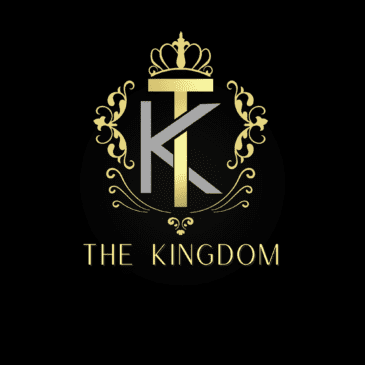
How to Build Rapport in Sales
Sales has changed. This is becoming a more popular saying and for good reason. Sales tactics are changing and this is a good thing. Gone are the days of manipulation and being sleazy. So, in this new environment of selling, everyone needs to know how to build rapport in sales. If you can master rapport, you’re around 30% of the way there. This may not seem like a huge piece of the puzzle, but it really is. Without mastering this, you will struggle to sell anything to anyone. So, let’s figure this out.
Gone are the Old Days of Manipulation
The old days that believed the answer to how to build rapport in sales by small talk is gone. There are several problems with small talk. Let’s look at the problems.
- The prospect can see through it. Everyone knows that you, as a sales person, do not care how someone’s day is going. Many prospects will view this as a manipulation tactic. Even if you do care, the prospect doesn’t care that you care. Questions like these add very little value to anyone’s life. A prospect isn’t speaking with you because they want to find something in common with you. They aren’t interested in knowing that you both like fishing. They are going to you because you have something that they need. Either a product, knowledge, or both. In other words, they don’t want a friend, they want an expert.
- Many prospects will find small talk to be a waste of time and if you attempt it, you may bother them. Some prospects are A type personalities which means they are impatient and have little tolerance for stupidity. You never know which prospect this will be until it’s too late. Always approach a prospect with absolute respect for their time to avoid any of these problems.
- It’s a waste of your time. I think this is self-explanatory.
- It’s not effective. Small talk does not increase the likelihood of a prospect saying yes. They may feel more comfortable around you, sure, but having feelings of being close friends doesn’t change the outcome.
Rapport Techniques are Changing
As you can see, small talk is not the best way to create rapport. In fact, it can backfire on you. However, this doesn’t mean that you can’t small talk. What it does mean is that you should not be the one starting it. ALSO, it means that you should limit how much small talk you do. If the prospect starts small talk, you can reciprocate and chat back. Just remember this rule.
Don’t start the small talk and when the prospect starts small talking, limit the length of the conversation.
If you follow this guideline, you’ll automatically be off to a great start. However, there is more you need to know about how to build rapport in sales. Let’s dig in deeper.
What is Rapport?
When I first started learning how to sell, I was selling insurance. The Agency owner would regularly bring me into his office and give me lessons on sales. He was so confident and had such an overwhelming personality that it was hard to not believe what he told me. I mean, the guy acted like he could walk through walls. He constantly emphasized that friends buy from friends. He said that everyone needs to become my best friend. I was told that small talk was the way that people become friends. One example he gave was a time he was cold calling someone and started the conversation by asking the prospect what his hobbies were and discovered that the man liked boating and duck hunting in some distant location. Apparently they spoke on the phone for an hour about duck hunting before the sale was made. However, when I tried this approach, I got hung up on, yelled at, mocked, and never sold anything.
This is because the fundamental idea that I was being taught about rapport was incorrect. Rapport is not about becoming friends with everyone. Rapport is a connection between 2 people and different relationships need different types of rapport. A friendship needs to find things in common. This is literally the glue to friendship. However, a sales person is NOT a friend, but an expert. You don’t expect to have things in common with an expert. Could you imagine how silly it would be for a doctor to walk into the exam room and ask you if you’ve been bowling lately? That’s ludicrous. An expert needs a different type of rapport. Let’s discuss these aspects.
Technical Expertise
Let’s continue with the idea of a doctor creating rapport with a patient for these examples. When someone is looking for a doctor, they want the best doctor available. They look for doctors that have awards and maybe doctors that went to prestigious schools. This is why you’ll often see diplomas and magazine articles about them posted on their walls. When someone walks into a doctor’s office, they expect the doctor to be very knowledgeable and capable at doing their job. They expect the doctor to come into the exam room, ask a few questions, order a few tests without issue, analyze the test results with accuracy, then prescribe a fix to the problem that brings results.
Imagine this, you go to the doctor’s office and when the doctor walks in they have a blank stare for a moment, then they call the nurse over. When the nurse walks in the doctor says, “Hey, um, it’s my first day and I don’t remember what I am supposed to ask them.” and the nurse responds, “Just ask them why they came into the office today.” What would you think? He’s incapable, right? Everyone wants to work with the best.
Keep this lesson in mind. People may suffer through working with someone new, but everyone always wants the best. Everyone wants to work with the top dog. Being capable at your job builds a connection between the 2 of you. This is the first part of rapport. be technically good at your job.
Friendly Attitude
Respect is the main thing everyone desires. As long as you treat them with respect, they will respect you for doing that. So approach every person you meet with a respectful and friendly tone.
People often misunderstand this and use it in a manipulative way. Smiling too much will make you seem fake. Being overly excited to meet someone is pure manipulation. Overly using their name is very annoying. Being friendly and respectful does not mean you need to be overbearing. Simply stop grunting, being rude and sarcastic, and don’t speak to people like they are children.
I would approach everyone with a serious, yet respectful and friendly temperament. Take what they say seriously, and be friendly and respectful while you listen to them. You don’t want to be overly silly or seem like you don’t care. Being too humorous is often viewed as incapable or disrespectful.
By being respectful, you will strengthen the connection you have with your prospect. They will respect you for having the persona of an expert.
Transparency
Transparency or trustworthiness is one of the most important parts of rapport. The moment that your prospect starts second guessing your trustworthiness is the moment that you destroyed your rapport. Many good sales have been ruined by a sales person caught in a lie or a half-truth when they didn’t even need to lie in the first place. Don’t be this guy. Trustworthiness is the glue to everything else.
What is the Function of Rapport in Sales?
If we overgeneralized the sales process we can say Step one is prospecting, step 2 is rapport, and step 3 is the close. What this means is that if everything is perfect, the only way you would lose the sale is by messing up rapport. Many potential sales are destroyed daily by salespeople messing up rapport. The sad thing is that rapport is not difficult once you understand what it is.
Remember that earlier I said rapport makes up about 30% of the sales process. This means that people can still buy from you even if you completely butcher rapport. However, this is when buyer’s remorse creeps in. If someone can’t trust you, they will regret their purchase. Messing up rapport is the cause of bad reviews. If you’re unfriendly to someone, they may still buy it, but they will likely complain about how terrible the experience was. Rapport can completely destroy a sale, or it can lead to regret.
My Car
I bought a car once. It was a good car, and nothing was wrong with it. I did a lot of research before buying the vehicle and knew exactly what model and color I wanted and I even knew which features I wanted. When I went to buy the car, the sales person was very manipulative. I ended up buying the car, and it turned out to be a good vehicle. However, for the entire lifespan that I owned that vehicle, I always felt like I was taken advantage of somehow. I felt like I got a bad deal.
As a sales person, you can easily make it so that your customers are very happy with their purchase, or you can make it so that they feel regret. It all comes down to have you treat them. This is the function of rapport.
Conclusion
Learning how to build rapport in sales is easy, but most people are not taught the right things. Little things you do throughout the sales process are probably harming your rapport. As a diligent sales person, you should constantly be analyzing how to build rapport in sales and in your sales process to see how you can increase the 3 major areas of rapport: technical ability, attitude, and transparency. By maximizing these aspects, you’ll not only be maximizing your sales, but you’ll be maximizing the emotions your prospects feel for years after the sale.
Resources
As a sales person, you need to communicate well. Good communication can help with rapport as well. For more information about this, read: Sales is All About Communication.
Get Connected
-
- If you have enjoyed this article, you can get alerted to new articles and exclusive information by joining our email list. You can access this through the pop up on our home page. (You’ll also get a bunch of free stuff.)
- If you would like to keep learning, check out more of our articles!
